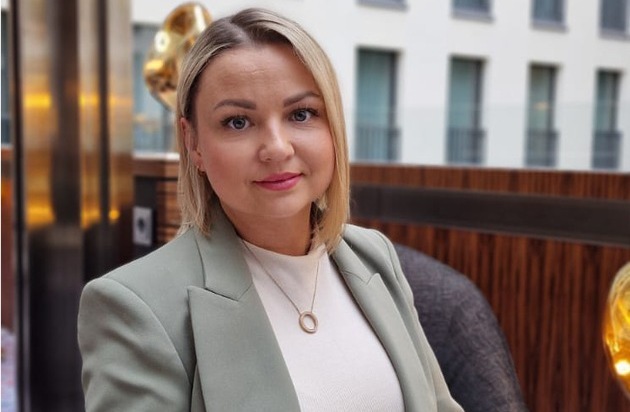
Anastasia Kirjanow from ZHP-Pflege: What the legalization of cannabis means for …
Kruft (ots)
Pharmaceutical pain medications have strong side effects and lead to habituation effects when taken long-term – but until now, older people and patients with chronic illnesses were dependent on these medications. Is the legalization of cannabis a ray of hope for pain management?
Anyone who has to take painkillers over a longer period of time knows the problem: the body develops resistance, which leads to reduced effectiveness. This means that the dose must be increased gradually to ensure effective pain relief. However, a higher dose usually means more severe side effects. “Such side effects can include loss of appetite, constipation and other symptoms that lead to a lower quality of life for pain patients,” says Anastasia Kirjanow, managing director of ZHP Care. “However, it is also possible that serious gastrointestinal problems, kidney or liver damage can occur. In addition, long-term use can lead to depression, anxiety or other mental illnesses. All of these side effects are often accompanied by social isolation which increases the psychological suffering. There is also a high risk of becoming addicted to painkillers.
“This vicious circle can be broken with alternative treatment methods such as medical cannabis,” adds Anastasia Kirjanow from ZHP-Pflege. “There is a chance for pain patients to escape the side effects because the intake of medication can be significantly reduced or even stopped completely.” Anastasia Kirjanow is familiar with the problems of pain therapy in older people due to her work as managing director and nursing service manager at ZHP-Pflege. With her outpatient care service, she focuses on professional and individual care for seniors who do not want to leave their familiar surroundings. This ranges from basic household tasks to medical care and also includes emotional support. Below she has summarized how the legalization of cannabis affects pain therapy and what obstacles still need to be removed.
The benefits of pain therapy with cannabis
Cannabis therapy is often perceived by pain patients as cathartic and relieving. Many people finally find peace, can sleep again and gain strength from this alone. It can often be seen that the general condition of the patient stabilizes. Many older people who switch to cannabis have previously had long-term drug therapy with the corresponding side effects. Her quality of life was impaired without the medication completely eliminating the pain. In addition to the pain itself, those affected are also concerned with the limited mobility, which increasingly isolates them.
Side effects of medical cannabis are hardly known. Older people with chronic pain usually receive it orally in low doses, whereby an intoxicating or addictive effect is ruled out. The liver and kidneys are not damaged by taking it, which also speaks in favor of its use in older people. We are often dealing with a combination of painkillers and cannabis therapy. The advantage is that the medication can be dosed in low doses.
Another strength of cannabis is its availability. Bottlenecks are becoming more and more common in the production and delivery of medicines. At the moment it is particularly important to think about the ongoing problem with the procurement of antibiotics, which could well extend to painkillers. Cannabis, on the other hand, is easy to grow at home, so the necessary amount is always within reach.
The new law
Prescribing medical cannabis has been legal since 2017, but until now it has been quite difficult to find a doctor to do so. Currently, patients still have to contact a pain therapist who will submit the application to the insurance provider and issue the prescription. However, since the release of medical cannabis, pain sufferers have easier access to treatment options. In particular, they are no longer forced to turn to the illegal market. However, with the new law on extensive legalization, significantly more doctors will probably agree to prescribe the therapy and thus pave the way for those affected. The new law also improves the possibility of relieving pain on a “herbal basis” without consulting a doctor.
With the legalization of cannabis in Germany, access will likely be through licensed sales outlets or pharmacies. Pain patients will be able to obtain their cannabis like their usual medicine by prescription from any pharmacy. Currently, those affected often have to travel long distances to get medicine.
Education is important
The new law brings an improvement simply because it makes it easier to talk about the “taboo topic”: Cannabis loses its connection to illegality. Open communication between doctors, pain patients and relatives will have a positive effect on the consultation. Of course, there is also specialist literature that provides basic knowledge and answers initial questions, but most people prefer to make a final decision together with a doctor whom they trust completely.
The government could also do its part to increase trust by significantly simplifying the application process or abolishing it entirely. Today, submitting an application is a lengthy, bureaucratic process that requires up to six months for approval and cannot be billed by doctors. It should be clear that an unpaid application process hardly promotes doctors’ willingness to deal with cannabis therapy.
Ideally, information about cannabis therapy should be made available to hospitals, rehabilitation clinics, doctor’s offices, care facilities and other facilities where pain patients come together: factual information would help many people achieve a better quality of life.
Are you looking for an outpatient care service for individual and professional care in your own home? Contact Anastasia Kirjanow from ZHP-Pflege now and make an appointment!
Press contact:
ZHP care
inh. Anastasia Kiryanov
Email: [email protected]
Website: https://www.zhp-pflege.de/
Press contact:
Ruben Schäfer
Email: [email protected]
Original content from: ZHP care, transmitted by news aktuell

Ethel Purdy – Medical Blogger & Pharmacist
Bridging the world of wellness and science, Ethel Purdy is a professional voice in healthcare with a passion for sharing knowledge. At 36, she stands at the confluence of medical expertise and the written word, holding a pharmacy degree acquired under the rigorous education systems of Germany and Estonia.
Her pursuit of medicine was fueled by a desire to understand the intricacies of human health and to contribute to the community’s understanding of it. Transitioning seamlessly into the realm of blogging, Ethel has found a platform to demystify complex medical concepts for the everyday reader.
Ethel’s commitment to the world of medicine extends beyond her professional life into a personal commitment to health and wellness. Her hobbies reflect this dedication, often involving research on the latest medical advances, participating in wellness communities, and exploring the vast and varied dimensions of health.
Join Ethel as she distills her pharmaceutical knowledge into accessible wisdom, fostering an environment where science meets lifestyle and everyone is invited to learn. Whether you’re looking for insights into the latest health trends or trustworthy medical advice, Ethel’s blog is your gateway to the nexus of healthcare and daily living.


